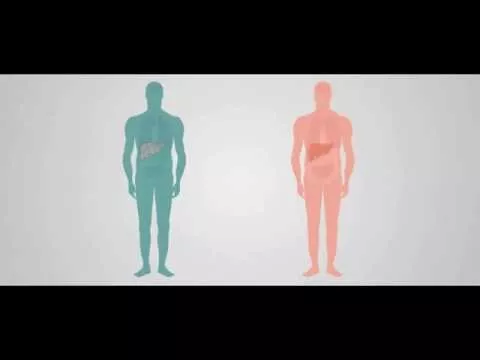What makes the Transplant Programme at the Aster Multi-Organ Transplant unique? 22 expert doctors. Yes, we have an exceptional team of 22 internationally trained doctors from various subspecialities with a collective experience of 2500 liver transplants, 200 pancreas and 4000 complex liver, biliary and pancreatic surgeries including the first split liver transplant, first simultaneous pancreas kidney transplant and first simultaneous liver kidney transplant in Karnataka.
Aster Multi-Organ Transplant offers live and cadaver liver transplant, split liver transplant and pancreas transplant and is one of the few centres in the India to offer Robotic Liver Surgery.
FAQs
At Aster Hospitals we provide the highest quality of care and a transformative experience for all your healthcare needs. With our network of multi-speciality hospitals, specialised doctors, and world-class technology, we bring global standards of medical care to our patients.
What Is a Liver Transplant?
A liver transplant is a surgical procedure that removes a liver that no longer functions properly (liver failure) and replaces it with a healthy liver from a deceased donor or a portion of a healthy liver from a living donor.
What Are the Types of Liver Transplants?
- Orthotopic Liver Transplantation is when the diseased liver is replaced by a healthy liver from a donor who has recently died. This is the most common procedure for liver transplants.
- Living Donor Transplantation is when a living person donates a part of his or her liver to someone who needs a new liver. This procedure has been increasingly successful, but it carries risks for the donor, and only a small number of living donor transplants are available for patients with liver cancer.
What Are the Risks and Side Effects of a Liver Transplant?
A liver transplant, like all major surgery, has possible serious risks such as bleeding, infection, and complications from anesthesia. In addition, people who have a liver transplant may have side effects from the immunosuppressive drugs they need to take. These medicines weaken the immune system so the body does not reject the new liver. This means, however, that a patient may be at increased risk for developing other serious infections. Some of the immunosuppressive drugs can also cause high blood pressure and cholesterol, diabetes, and weaken the bones and kidneys. Regular health care checks with the transplant team are critical to staying as healthy as possible after a liver transplant.
Major causes of cirrhosis leading to liver failure and liver transplant?
- Hepatitis B and C.
- Alcoholic liver disease, which causes damage to the liver due to excessive alcohol consumption.
- Nonalcoholic fatty liver disease, a condition in which fat builds up in the liver, causing inflammation or liver cell damage.
- Genetic diseases affecting the liver, including hemochromatosis, which causes excessive iron buildup in the liver, and Wilson's disease, which causes excessive copper buildup in the liver.
- Diseases that affect the bile ducts (the tubes that carry bile away from the liver), such as primary biliary cirrhosis, primary sclerosing cholangitis and biliary atresia. Biliary atresia is the most common reason for liver transplant among children.
Can you live a normal life after a liver transplant?
Liver transplant can have excellent outcomes. Recipients have been known to live a normal life over 30 years after the operation.
Patient Stories
Our patients are our best advocates, hear the inspiring stories of their treatment journey
Blogs
The source of trustworthy health and medical information. Through this section, we provide research-based health information, and all that is happening in Aster Hospital.


















